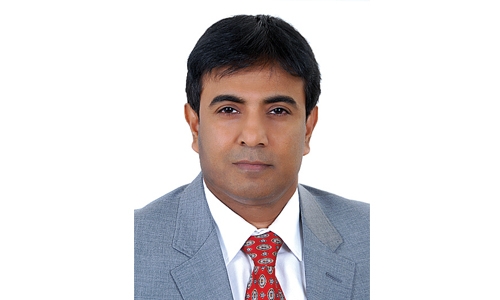Experiencing Migraine? Manage it with KIMS
Manama : Migraine is a very common yet particular type of a headache. It is a severe, recurring and painful headache that can be accompanied or preceded by sensory warning signs and other symptoms. It is known to last for 4 to 72 hours if untreated. Migraine is usually triggered by anxiety, stress, and lack of food or sleep, exposure to light and also hormonal changes. It may progress through four stages namely prodromal, aura phase, attack phase and post-dromal, though people do not necessarily experience all stages.
Two types of Migraine: Migraine without aura, or “common migraine”, involves migraine headaches that are not accompanied by an aura.
Migraine with aura, or” classic migraine”, usually involves migraine headac–hes accompanied by an aura. Less commonly,
Migraine are of four stages: prodrome, aura, headache and post-drome, through you may not experience all stages.
Prodromal happens several hours up to 2 days in advance in which symptoms like anxiety, euphoria, food cravings, and fatigue with frequent yawning are common.
Aura phase occurs about an hour before to right when the headache strikes. Only about 20 per cent people with migraine experience this phase where in the symptoms show change in vision such as flickering, shimmering or flashing lights, difficulty focusing, trouble speaking, writing and understanding words and muscle weakness.
The attack phase is when the actual headache strikes which can last for hours up to days. Symptoms show throbbing or pulsing pain ranging from moderate to severe pain often on one side but can also occur on both. Sensitivity is increased to light, sound and sometimes smell and touch, nausea and vomiting, blurred vision and light-headedness sometimes followed by fainting. Some even experience sweating, temperature changes and diarrhoea.
During the final phase, most people experience extreme fatigue, sluggishness, confusion and irritability. There are also few different varieties of migraine such as chronic migraine, menstrual migraine, hemiplegic migraine and abdominal migraine. Some of the treatments to prevent a full-blown attack of migraine include getting enough sleep, reducing stress, drinking plenty of water and also regular exercise.
“Migraines are often undiagnosed and untreated. If you regularly experience signs and symptoms of migraine attacks, keep a record of your attacks and make an appointment with your doctor to discuss your headaches. Even if you have a history of headaches, see your doctor if the pattern changes or your headaches suddenly feel different,” says Dr Jose W. Chacko, Specialist ENT at KIMS Bahrain Medical Centre.
Related Posts

